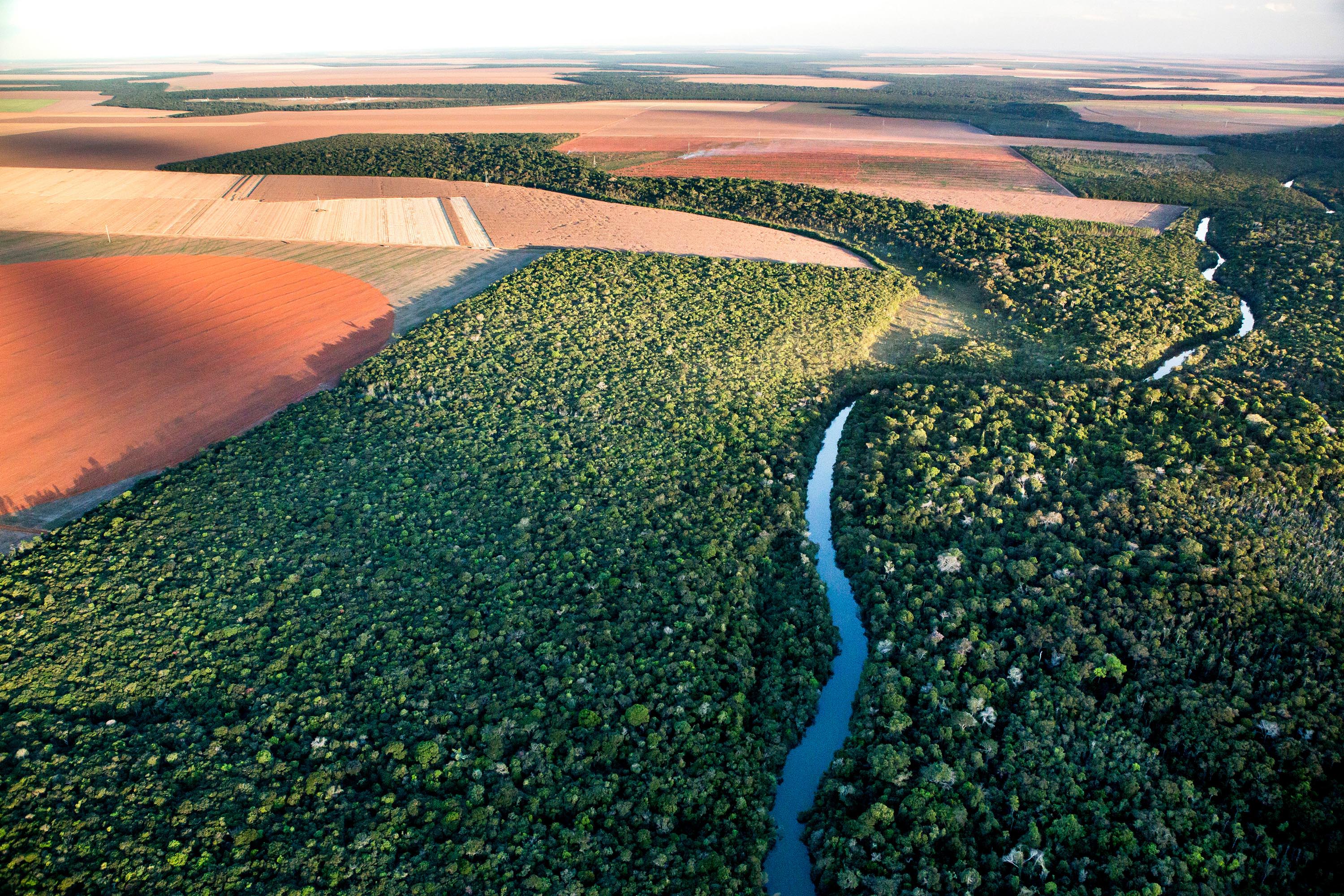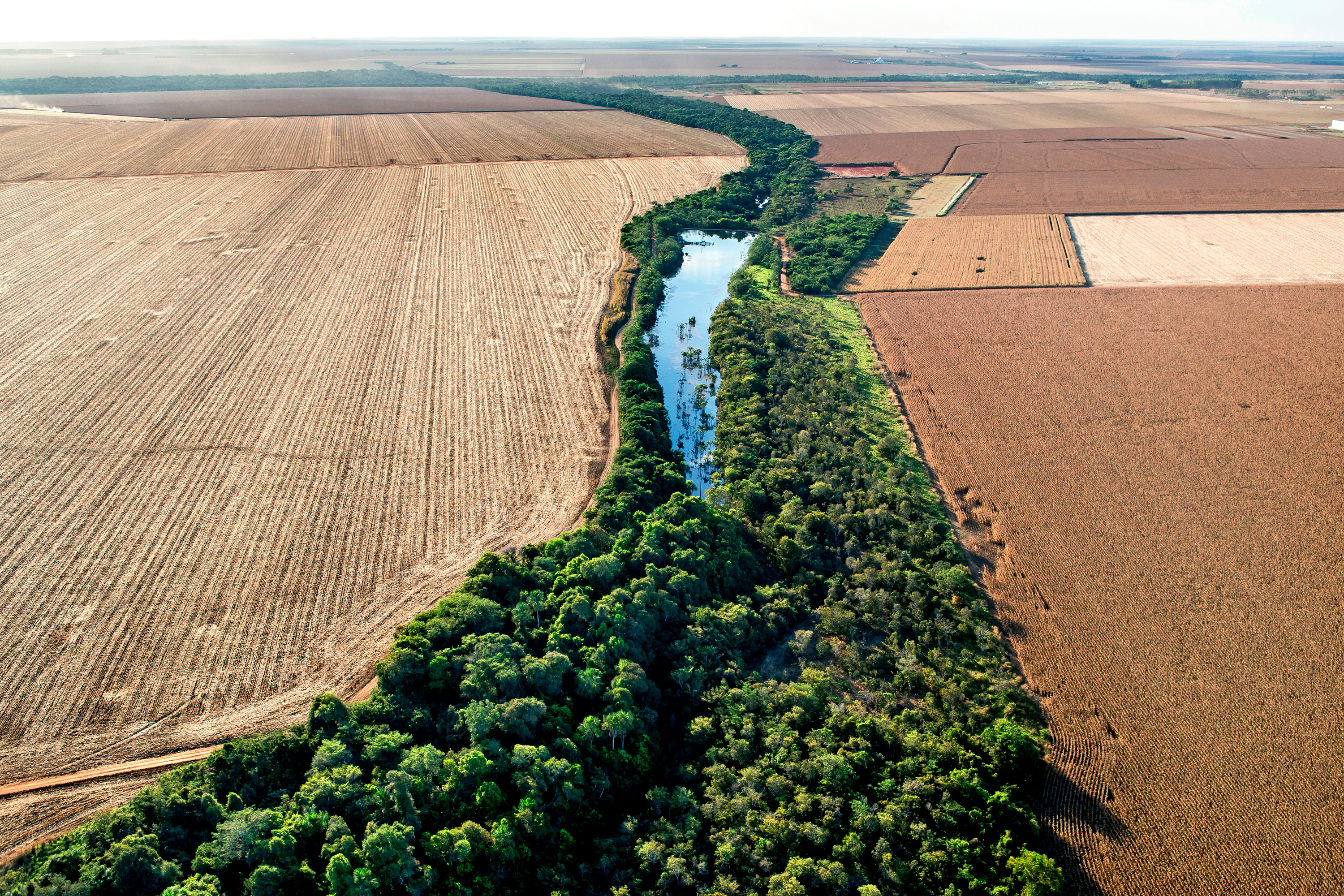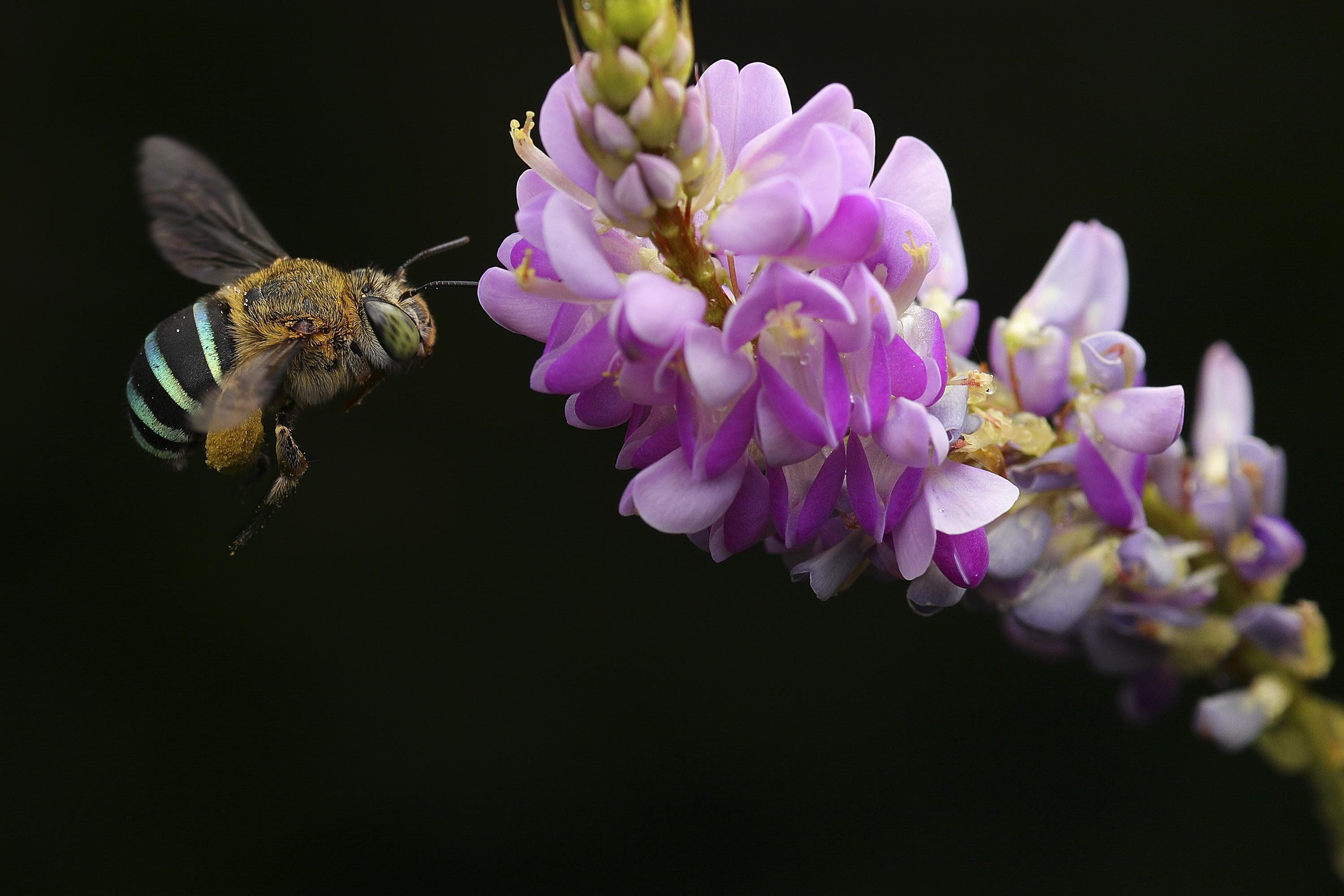The role of Finance in sustainable development of the Cerrado
By Anna Lucia Horta e Gabriel Penteado
Environmental Framework
Read the full report here.
The importance of agribusiness for the Brazilian economy is undeniable: in 2019 alone, the sector accounted for more than 20% of the national GDP. Agribusiness is also directly influenced by weather conditions where reduced rainfall or extreme temperatures can lead to a decrease in productivity and even crop failure. Maintaining production and financial returns for the various actors in both the short and the long term is challenging.
Analyses conducted by The Nature Conservancy (TNC) in partnership with Agroicone reveal that the Cerrado has over 18.5 million hectares of already cleared areas that are suitable for row crop agriculture, more than double the amount needed to accommodate the 7.3 million hectares of soy expansion by 2030 projected by the National Supply Company (CONAB). Clearly it is possible to expand Brazil´s soy crop without cutting down a single tree, which is excellent news for our goal of aligning soybean production with preserving the biome, an essential strategy to combat climate change.
One way to direct expansion to already open areas and avoid transforming natural habitat into new plantations is through financial mechanisms. With access to differentiated funding such as catalytic and risk mitigation funds (de-risking), financiers can play a crucial role in backing producers who prioritize environmental aspects. Additionally, financial agents can develop new business opportunities and leverage the reputational and financial benefits associated with conserving the Cerrado region. Producers, in turn, would receive more favorable financing conditions, such as a longer vesting period, long-term financial mechanisms (whose supply in the market today is limited), lower interest rates, flexibility in required collateral, among other advantages, which would encourage the adoption of good agricultural practices and deforestation-free production.
To support this mission, TNC developed the Environmental Framework for Lending and Investing in Soy in the Cerrado, with the goal of harmonizing environmental criteria for financial instruments and serving as a reference for creditors and investors who want to create or adapt their mechanisms to address this urgent agenda.
The Framework has three
mandatory criteria to ensure soy production without conversion. The
first is simply legal compliance across all of a producer or company´s
properties (not just the financed one); the second is a January 2018
reference date for no instances of deforestation on the property; and
the third refers to restrictions on irrigation investments in areas of
potential water deficit, according to studies by the National Water
Agency (ANA).

There are also five additional elements - which can be chosen and combined in different ways if organizations want to maximize the positive environmental impact or wish to create an even more ambitious product line. They are: applying the January 2018 reference date for zero deforestation across all properties held by the producer seeking to access the financial mechanism; prioritizing investments in regions where there is both a high risk of deforestation and where soy is economically viable; adopting good management and agricultural practices; prioritizing areas without evidence of land conflicts, which can be monitored by checking the Pastoral Land Commission (CPT) and information from the press; and adopting IFC performance standards (IFC PS), the arm of the World Bank that works with the private sector.
These requirements help steer the sector towards a more sustainable and profitable model. Studies show that, although the financial return on expansion over native vegetation is still higher than on degraded pasture, this difference can be reduced by adjusting financing conditions. Offering the producer differentiated financial conditions for expansion over already converted areas, whether in the acquisition or lease of pasture land, is a powerful message in favor of a sustainable future for the sector, as it seeks food security while conserving the biome.
For the agricultural sector to maintain, in the medium and long term, its role as a propellant of the Brazilian economy, various actors in the value chains will need to be engaged, from the investor to the producer, so that productive practices and financial mechanisms reflect the interconnection between agricultural production and natural resources.
Originally posted on Investing.com (Portuguese)
December 30, 2020
View Original
Anna Lucia Horta is a Business and Investment Manager and Gabriel Penteado is a Business and Investment Specialist, both at The Nature Conservancy (TNC), Brazil.



